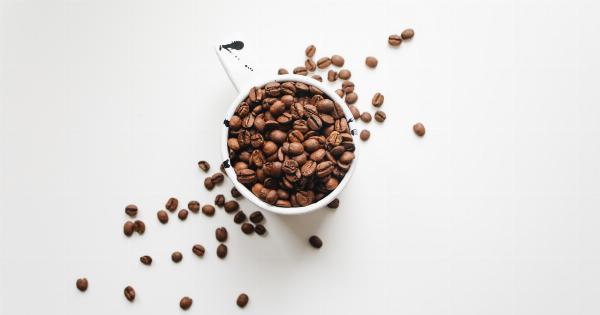When it comes to weight loss, most of us focus on diet and exercise as the primary keys to success.
However, emerging research suggests that the sense of smell, and the scents we encounter throughout the day, may play a significant role in our efforts to shed those extra pounds. In fact, certain smells have been found to influence appetite, cravings, and overall food intake, making them a potential ally in the quest for a trimmer waistline.
The Science Behind Our Sense of Smell
Before we dive into the intriguing connection between scent and weight loss, let’s first take a brief look at the science behind our sense of smell. Our olfactory system, responsible for our ability to detect odors, is incredibly complex.
When we encounter a scent, specialized cells in our nose called olfactory receptors are stimulated and send signals to the brain.
Unlike our other senses, the olfactory system has a direct connection to the areas of the brain responsible for emotions and memory, which is why certain smells can trigger vivid memories or intense emotional responses.
Interestingly, the olfactory system is also closely linked to our sense of taste. In fact, experts estimate that up to 80% of what we perceive as taste actually comes from our sense of smell.
This intricate connection between scent and taste ultimately influences our food preferences and choices.
The Smell-Satiety Connection
One of the most fascinating aspects of the scent-weight loss connection is its impact on satiety, the feeling of fullness and satisfaction after eating.
Certain smells have been found to enhance satiety, making us feel more satisfied with smaller portions of food.
For example, a study published in the journal Appetite found that the aroma of peppermint could reduce hunger and cravings.
Participants who inhaled peppermint scent regularly reported lower hunger levels and consumed fewer calories compared to those who did not.
Similarly, another study conducted at Wheeling Jesuit University discovered that smelling banana, green apple, or peppermint significantly reduced appetite and overall food intake.
The researchers believe that these scents may trigger a “sensory-specific satiety” effect, where exposure to a particular scent decreases the pleasure derived from consuming that specific food, ultimately leading to reduced consumption.
Aromatherapy for Weight Loss
Given the potential impact of scent on appetite and satiety, many individuals are now turning to aromatherapy as a complementary tool for weight loss.
Aromatherapy involves the use of essential oils, which are highly concentrated plant extracts with distinctive scents.
Essential oils can be inhaled directly, diffused into the air, or applied topically to the skin. They can stimulate the olfactory receptors and influence brain activity, triggering specific physiological and psychological responses.
Some essential oils are believed to have appetite-suppressing properties, making them a popular choice for those aiming to lose weight. Grapefruit essential oil, for example, is thought to reduce cravings and promote a feeling of fullness.
Lemon essential oil may help enhance digestion and regulate blood sugar levels, which can aid in weight management.
It is important to note that while aromatherapy may complement a weight loss regimen, it is not a substitute for a healthy diet and regular exercise.
Seeking guidance from a qualified aromatherapist or healthcare professional is recommended to ensure proper usage and avoid any potential adverse effects.
The Aroma-Food Connection
Interestingly, the impact of scent on weight loss goes beyond appetite control and satiety. Certain smells can also influence our cravings and food choices.
A study conducted at the University of California, Berkeley found that the scent of fresh fruit helped increase healthy food consumption, while the scent of cookies and pizza had the opposite effect.
Participants who were exposed to the fruit scent consumed significantly more fruit, while those exposed to the cookie and pizza scent consumed more unhealthy snacks.
This suggests that incorporating pleasant scents related to healthy foods into our environment may subconsciously influence our food choices and steer us towards more nutritious options.
The Role of Emotional Eating
Emotional eating is a common challenge for many individuals trying to lose weight. Stress, sadness, and other emotional triggers can lead to uncontrollable cravings and overeating.
Interestingly, scents can also play a role in modulating our emotions and potentially reducing emotional eating episodes.
Lavender essential oil, known for its calming properties, has been shown to reduce stress and anxiety levels. Inhaling lavender scent may help curb emotional eating by soothing the mind and promoting a sense of relaxation.
In a study published in Physiology & Behavior, researchers found that participants who were exposed to lavender scent experienced reduced chocolate cravings compared to those who were not exposed.
Additionally, their intake of chocolate was significantly lower, indicating that lavender scent may help curb emotional cravings for specific comfort foods.
Creating a Scent-Positive Environment
To harness the potential benefits of scent in aiding weight loss, consider integrating the following practices into your daily routine:.
1. Incorporate Pleasant Scents at Mealtimes
When preparing and enjoying your meals, try to create a pleasant scent environment. Light scented candles, diffuse essential oils, or use natural room sprays with calming or appetite-suppressing scents like citrus, peppermint, or lavender.
2. Keep Unhealthy Food Scents at Bay
Avoid exposing yourself to the scents of unhealthy and tempting foods. This can be challenging, especially in social situations or when walking past bakeries or fast-food restaurants.
However, being mindful of these scents and consciously avoiding prolonged exposure can help reduce cravings and prevent impulse eating.
3. Experiment with Essential Oils
Explore different essential oils known for their weight-loss-related properties. Grapefruit, lemon, peppermint, and lavender are just a few examples, but there are numerous other scents to choose from.
Experiment with how these scents make you feel and develop your own personalized aromatherapy routine.
4. Practice Mindful Eating
Building awareness around your eating experience can also enhance the impact of scents on weight management. Engage all your senses while eating by savoring the aroma, taste, and texture of your food.
This not only helps you fully enjoy your meal but also allows your brain to receive all the signals related to satiety, reducing the chances of overeating.
5. Seek Professional Advice
If you’re interested in incorporating aromatherapy into your weight loss journey, consulting with a qualified aromatherapist or healthcare professional is recommended.
They can guide you in selecting suitable essential oils, determine proper usage, and address any potential sensitivities or contraindications.
Remember, while scent may offer valuable support in your weight loss efforts, it should always be seen as a complementary tool rather than a standalone solution.
Conclusion
The fascinating link between scent and weight loss demonstrates the profound influence our sense of smell can have on our eating habits and overall food intake.
By understanding and utilizing the potential benefits of scent-related interventions like aromatherapy, we can potentially enhance satiety, reduce cravings, and make more conscious food choices.
While further research is needed to fully understand the intricacies of this connection, incorporating pleasant scents into our daily routines and practices may provide an extra edge in achieving and maintaining a healthy weight.





























